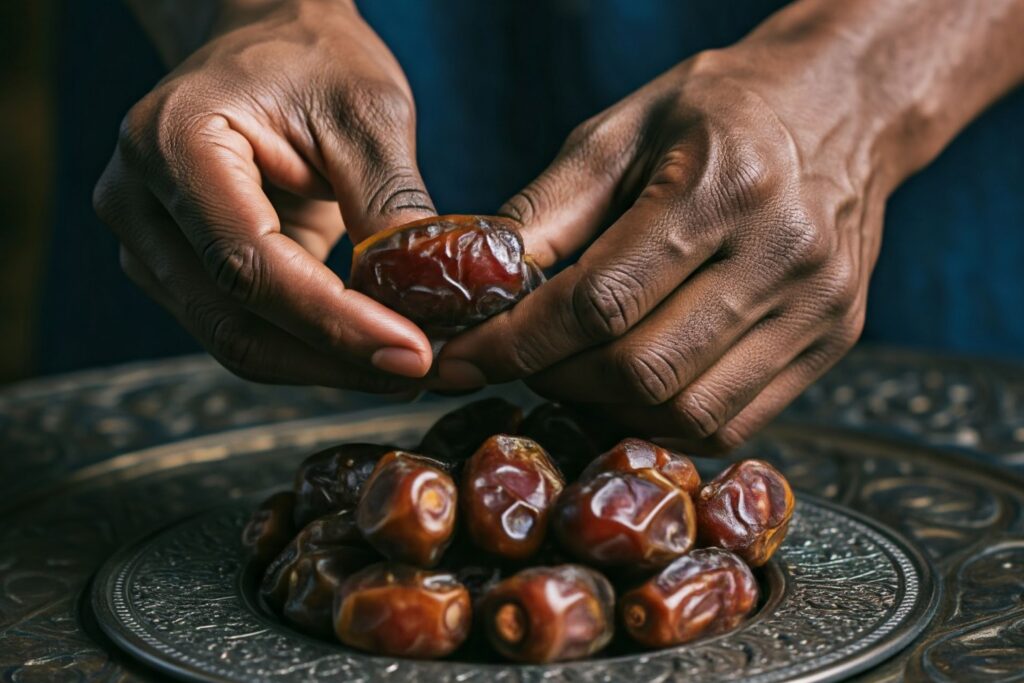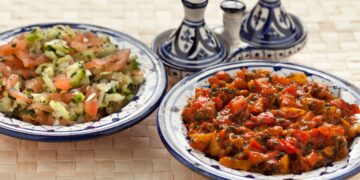Dates have been part of Moroccan life for centuries, not only as a staple food but also as a symbol of hospitality and abundance. Beyond their cultural and spiritual importance, dates are now gaining global recognition as one of the healthiest natural sweeteners available. With Morocco producing some of the world’s finest varieties — including the famous Medjool from the Tafilalet region — these fruits represent both tradition and innovation. Let’s explore why Moroccan dates are considered the ultimate natural sweetener and how you can use them in your daily diet.
The Nutritional Power of Moroccan Dates
Unlike refined sugar, which provides empty calories, Moroccan dates are packed with nutrients. They are naturally rich in fiber, potassium, magnesium, and antioxidants. Their natural glucose and fructose content makes them a quick energy booster, ideal for athletes, students, or anyone needing a healthy pick-me-up.
For centuries, Moroccans have broken their Ramadan fast with dates and milk, a combination that replenishes energy gently while supporting digestion.
A Heritage Rooted in the Desert
Dates thrive in Morocco’s desert climate, particularly in the Ziz and Draa valleys. Palm groves in regions like Erfoud and Rissani have been carefully cultivated for generations.
The Medjool, often called the ‘king of dates’, originated in Morocco and remains a symbol of the country’s agricultural pride. When you choose Moroccan dates, you are not only enjoying a sweet treat but also supporting a centuries-old heritage that links local farmers to the land and to global markets.
Healthier Alternative to Refined Sugar
Modern nutritionists increasingly recommend replacing refined sugar with natural alternatives, and dates are one of the best choices. Moroccan dates have a low glycemic index compared to processed sugar, meaning they provide energy without causing dramatic spikes in blood sugar.
They also contain soluble fiber, which promotes satiety and helps regulate digestion. For families aiming to reduce sugar in everyday meals, dates are a simple swap that improves both taste and health.
AfDB Procurement: How Moroccan Companies Can Seize Business Opportunities
In September 2025, over 100 local businesses in the Republic of Congo participated in a training seminar organized by the...
Building Business Partnerships Through Moroccan Cultural Events
In today’s interconnected world, businesses are constantly searching for innovative ways to establish trust, strengthen networks, and expand their reach....
Hiking Trails in the Middle Atlas Mountains
The Middle Atlas Mountains are often overshadowed by the High Atlas or the Rif, yet they hold some of Morocco’s...
From Passion to Profession: Turning Creative Skills into Income
In Morocco, more young people are transforming their creative talents into careers. Whether it’s photography, calligraphy, fashion design, or digital...
How to Use Dates in Everyday Recipes
One of the best things about Moroccan dates is their versatility. Here are a few popular ways to integrate them into your kitchen:
Date paste: Blend pitted dates with a splash of water to create a natural sweetener for cakes, cookies, or smoothies.
Energy bites: Mix chopped dates with almonds, sesame, or oats for a healthy snack.
Tagines: Add whole dates to chicken or lamb tagines for a balance of sweet and savory flavors.
Breakfast: Chop dates into yogurt, oatmeal, or Moroccan semolina porridge (harcha) for a naturally sweet start to the day.

Testimonial: A Local Voice
Omar, a 35-year-old nutrition coach from Marrakech, shares her experience:
“I started replacing refined sugar with Moroccan dates three years ago, and I have never looked back. At first, I used date paste in smoothies for my clients, but now I also add chopped dates to salads and couscous. The difference in energy levels is amazing — no more sugar crashes. Plus, I love knowing that I’m supporting Moroccan farmers while taking care of my health.”
Boosting Morocco’s Economy and Image
Beyond personal health, Moroccan dates also play a significant role in the country’s economy. Every October, Erfoud hosts the International Date Festival, celebrating the harvest and promoting Morocco as a leading exporter.
With rising global demand for natural and plant-based foods, Moroccan dates have become ambassadors of Moroccan culture, linking the country’s culinary traditions to the growing health-conscious movement worldwide.
Conclusion
Moroccan dates are more than just a sweet fruit — they are a healthy, versatile, and culturally rich alternative to refined sugar. From tagines to smoothies, they can transform everyday meals into nourishing experiences.
With their unique flavor, impressive nutritional profile, and centuries-old heritage, Moroccan dates stand out as the best natural sweetener. By choosing them, you are embracing health, tradition, and the richness of Moroccan land.















Discussion about this post